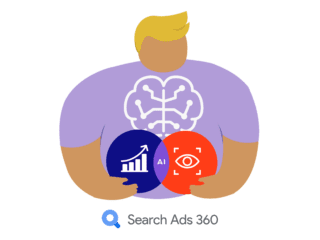The term “online dating” is misleading. On existing dating sites (LavaLife, Plenty of Fish, Match.com, etc) you don’t date online at all. Rather, you search and email (and possibly IM) online. The date, if it happens at all, takes place in the real world… and is usually unsuccessful.*
The problem is, you simply can’t know whether you’re compatible with someone until you’ve actually met and shared some experiences. Yet online dating sites don’t allow you to share experiences online. Rather, they simply grant you access to a database.
The Current (Pathetic) State of Online Dating
Dating sites gather basic data and allow users to sort potential matches by criteria such as:
- Age
- Sex
- Height
- Body type
- Income
- Location
Then in a lame attempt to determine compatibility, dating sites typically ask for:
- Type of relationship sought (long-term, casual, etc.)
- Hobbies and pastimes
- Sports
- Other Interests
The problem is, there’s only a weak correlation between shared interests and compatibility. (Addition problem: People tend to embellish. Like saying they’re into hiking, when they haven’t been in years.)
To allow for more personalization, dating sites let you post written profiles. Here’s your chance to describe yourself and tell the world what you’re looking for. What joy!
Except that most people can’t express these things very well. As a result, written profiles — even if honest — are typically tedious. And they all sound the same. (How many women’s profiles contain something to the effect of “I’m equally comfortable in hiking gear or a tiny cocktail dress”?)
eHarmony.com attempts to provide better results by “probing deeper” with more detailed personality profiles. But really, isn’t that an attempt to solve the problem by adding on more of the same? More tedious questions, to which users might simply provide what they think is the “correct” response, rather than what they feel?
And even if everyone answers all questions honestly, compatibility “on paper” rarely translates to real-life chemistry.
As a result, online dating is a numbers game: To stand a reasonable chance of success, you must initiate contact with scores of potential candidates, screen them down to perhaps a dozen or so serious contenders, then set up several real-life dates.
It’s an extremely inefficient, time-consuming and frustrating process. And the “rejection rate” is ego-crushingly high.
Approaching the Experience of Real-World Dating
In real-world dating, the participants actually experience things together. They interact naturally, converse, and get to know each other’s quirks (both endearing and annoying).
It’s only by sharing experiences that you can tell whether there’s real chemistry, real potential for a future.
Online dating sites must become more like the real world. We don’t need longer and more detailed questionnaires; we need the opportunity to interact and share experiences: To DO stuff together.
Online dating could take a cue from the “virtual worlds” that have existed since the 90’s. But it needs to go further and optimize the experience for adults who actually want to meet people in their local area.
For true “online dating” to work, you’d still have to gather some basic information: Sex and sexual orientation, age range, and precise location. And members will need to upload real photos of themselves (rather than the avatars typically used in virtual worlds).
But once that’s done, just let people mingle. Create a number of communities, and let people gather and interact naturally (via IM or voice) with whomever they like. Communities and activities might include:
- Art galleries
- Shopping
- Casinos and bingo
- Book clubs
- Movies
- TV shows
- Games and Puzzles
- Virtual sporting events
- Mysteries and adventures
- Improvisational theater
Better yet, let users organize online events. Let them send out invitations and host events at predetermined times. Events could be:
- House parties
- Political rallies
- Seminars
- Slide and video shows (e.g. “My trip to Burning Man”)
- Tutorials
- Live performances
- Watching “Saturday Night Live”
At these events, members could strike up conversations and actually take in experiences together. They could truly “date” online, getting to know each other in the process, and greatly increasing the chances of real-world success.
Who’ll Be the Next Internet Billionaire?
In sum, the current state of online dating is dire. Essentially, all you get is access to a database. There’s no real “experience” to it, and it’s a very poor predictor of real-world chemistry.
The potential, however, is incredible. Setting up a community in which members can enjoy experiences together — in which they can actually date online — will be a lot of work. But the first company to get it right will make a fortune.
* In my humble opinion, one reason first dates fail is because they’re often “coffee dates”. How and why “Starbuck’s” became the default first date is a great mystery to me.
“Going for coffee” is the worst possible first-date activity, for the simple reason that there’s no activity! You just sit and interview each other. How utterly contrived, stressful and pathetic. And no wonder it seldom works.
End the Starbuck’s curse. If you’re going on a date, DO something!
















